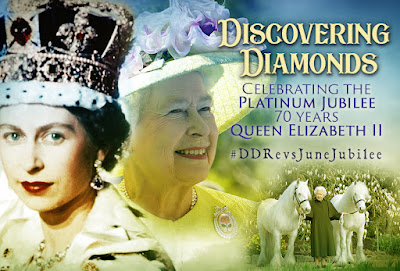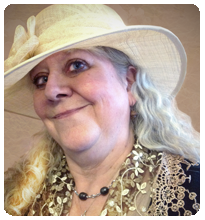To celebrate Her Majesty, Queen Elizabeth II's Platinum Jubilee Discovering Diamonds is hosting a series of excerpts or articles written by our wonderful review team. For our author reviewers: the theme is an excerpt from one of their novels portraying royalty - or an equivalent leader-type character. For our non-writer reviewers: a favourite monarch and/or novel about Royalty... In other words, an enjoyable mix of entertainment to acknowledge Queen Elizabeth II's longest reign in British history! 70 years!
God Bless you Ma'am.
(say ma'am to rhyme with 'jam' not 'farm')
England, 1044. Harold Godwinesson, a young, respected earl, falls in love with an ordinary but beautiful woman. In Normandy, William, the bastard son of a duke, falls in love with power.
In 1066 England falls vulnerable to the fate of these two men: one, chosen to be a king, the other, determined to take, by force, what he desires.
Risking his life to defend his kingdom from foreign invasion, Harold II led his army into the great Battle of Hastings in October 1066 with all the honour and dignity that history remembers of its fallen heroes.
In this beautifully crafted tale, Helen Hollick sets aside the propaganda of the Norman Conquest and brings to life the English version of the story of the man who was the last Anglo-Saxon king, revealing his tender love, determination and proud loyalty, all to be shattered by the desire for a crown – by one who had no right to wear it.
Excerpt From Harold The King /I Am The Chosen King
6th January 1066
London, Westminster Abbey
Standing flanked by the archbishops Ealdred of York and Stigand of Canterbury, Harold struggled to retain his concentration. A combination of tiredness, excitement and unexpected nerves was getting the better of him. To his left, a slab of marble lay new-mortared into the floor before the altar. Harold stared down at it as the abbey echoed from the singing of the Te deum laudamus, the ceremony of acclamation. Beneath the slab rested Edward’s coffin and the shrouded body of the dead king.
But he is no longer king, Harold thought, incredulously. The people have been asked if they will accept me as their sovereign and they have acclaimed me so.
Ealdred’s explicit words reverberated in Harold’s mind: “King, elected by the clergy and the people.”
The abbey of Saint Peter of Westminster, this sixth day of January in the year 1066, was as crowded now as it had been earlier in the day for Edward’s funeral. Some of the populace who had trooped from London and neighbouring villages and hamlets, unwilling to give up a prized position on a bench, had remained stubbornly in their seats, drinking their skins of ale and chewing goat’s cheese and bread. A cold easterly wind raged outside, another reason to stay warm and dry within.
Reading in English from a schedule given him by the archbishop, Harold solemnly declared the triple oath, his mind flirting with incongruous personal thoughts as Ealdred proceeded to give instruction and admonishment for his own good and for that of his people. Soon, he
would ask Harold to make the promises to keep true peace within the Church of God and the whole
dominion of his Christian people, to forbid rape and wrongful acts
in every degree,
and to ordain that justice and mercy should be
observed in all legal judgments: the traditional preliminaries to the ceremony proper.
Several times Harold felt the urge to run from the abbey, flee before
it was too late. He was to be king,
the first to be crowned
in this abbey – by
God’s good mercy could he do this thing?
Edgar, the boy, was the heir and ætheling – but if he, a man grown,
was filled with these doubts
and
anxieties, how would a lad of
his age grapple with the enormity of the task ahead? Those
doubts had almost overcome Harold in the
early hours of yesterday
morning as news came that Edward was dead. “Do I deserve to be elected
king?“ he had said to the council. “I am a statesman, a warlord, but am I the stuff of kingship?”
“What is it you shirk from?” his brother Gyrth had asked. “Or do you fear
those who may oppose you? The commitment to God
and country? The responsibility?”
“I fear all those!” Harold had retorted emphatically. “I would be the greater fool were I not to.”
“Which is why
you will make a good king,” Eadwine of Mercia had countered, offering his hand in friendship..
In the abbey, Harold jerked his attention back to the ceremony. Ealdred was again standing before him, anointing his head with chrism, the holiest oil known to the church, and the anthem,
They Anointed
Solomon, lifted from the sweet, clear voices of the choir.
Trouble
would come from Normandy over this. Could there be any doubting that unofficial word was already speeding on its way southwards? Officially, a letter would be sent by courier on
the morrow, duly endorsed by
the newly crowned and anointed king,
greeting William and asking that the marriage arrangement between himself and William's daughter be upheld, to unite
Normandy and England in the union of kinship. Kinship? What stability or loyalty did kinship bring?
A brother. Tostig. How was he going to react to this
day’s crowning? Harold could guess only too well. And his sister Edith, where did her loyalty lie?
With a brother, certainly, but not with the one declared as king. She had refused to attend this ceremony, claiming it was too soon after Edward’s death. Harold admitted she
was right there, for he too
had protested against a kingmaking coming on the same day as a king's burial. Edward had died in the hours of the fifth day of January, was put into his grave on the morning of the sixth and his crown placed on the head of his successor
that same afternoon.
“We wait until the next calling of the council, then, do we?” council had responded with unanimous scorn.
“Let England flounder like a beached whale, inviting our enemies to come through the wide open door to sample
our ale and women?”
For too long already had earls been absent from their manors, thegns from their farm holdings, bishops and abbots from congregation
and monastery. Council ought to have
disbanded three days past, for snow would be coming soon.
Archbishop Ealdred had said boldly, “We must all of us leave Westminster on the morning after Edward is buried. We cannot wait until the next council for a coronation. It would be better for you to claim your crown now. By Easter, who knows who else may come to try for the fit of it?”
To combine the laws of land and God together, the church had created a liturgy for the investiture of the Regalia of Kingship. There were five items of holy symbolism: the ring, sword, crown, the sceptre and rod, given to the king with the blessings of the Mother of God, Saint Peter, prince of
apostles and Saint Gregory the apostle of the English and all the saints.
“May God make you victorious and conqueror over your enemies; may He grant you peace and with the palm of victory
lead you to His eternal kingdom. May God bless this, our chosen king, that he may rule like David and govern with the mildness
of Solomon.”
And the abbey, so newly built and which smelt of sawdust and mortar, incense and male sweat, was filled with the answering roar of acclaim, shouted from every lip and
every heart as men came to their feet, three
times lifting their arms in salute,
and their voices in endorsement: Vivat
Rex! Vivat Rex! Vivat Rex in aeternum!
Harold sat, enthroned, enrobed, his expression a look of almost childlike wonder. He saw a sea, an ocean of faces, all with their right arms raised, mouths open acclaiming him. Long live the King! His brothers Leofwine and Gyrth – his nephew, Hakon, so delighted to be home in England among his kindred. The earls, Eadwine and Morkere; ealdormen of the council; men of the holy church. His friends, housecarls, thegns. To one side, his mother Countess Gytha, sated with pride and pleasure. Beside her, his sons, his daughters. Goddwin, Edmund, Magnus, Ulf, Algytha and Gunnhild. The boys with great moon-full grins, hands raised, chins jutting, shouting, Vivat Rex!
“Hollick constructs a magnificent epic in this unabashedly pro-Saxon recounting of a turning point in English history. Thanks to masterful storytelling, Harold's nobility and heroism enthral to the point of engendering hope for a different ending to the famous battle of 1066.” Publishers Weekly
“Whether
the events described actually happened is unimportant, that the reader feels
instinctively that they could have happened is the sign of a superior novel.
This is a fabulous read and one to be recommended unreservedly – even to
committed ‘Williamites’. If only all historical fiction could be this
good." Historical Novel Society Reviews
From Amazon Reviews:
"Liked every page, never bored and felt like I was living in the time."
"What a compelling tale! Couldn't put it down. The battle is secondary, as this is the tale of the perfect storm that led William and Harold to that fateful day in Hastings."
"A well written - and well researched - story of the last Saxon king, Harold II."
Buy the book
(the same book - different title and publisher)
 |
| Amazon UK - Amazon AU |
 |
| Amazon US - Amazon CA |
About Helen
Her non-fiction books are Pirates: Truth and Tales (Amberley Books) and Life of A Smuggler (Pen & Sword).
She lives in an eighteenth-century farmhouse in North Devon, runs Discovering Diamonds, and occasionally gets time to write...





A great excerpt from a wonderful novel!
ReplyDeletethanks Annie
DeleteA heartwarming insight into Harold's feeling when faced with great responsibility. Thank you!
ReplyDeletethank you Alison
DeleteLooking forward to reading it! Great excerpt!
ReplyDeletethanks Juhi
DeleteI just love your Harold! And this excerpt, showing him struggling with so many conflicting emotions - brava!
ReplyDeletethanks Anna :-)
Delete